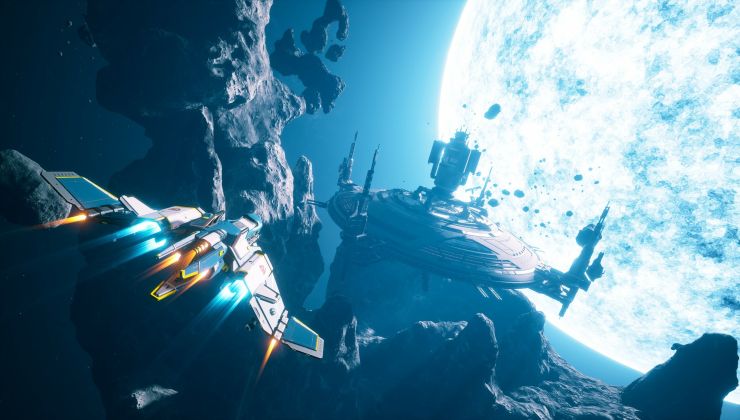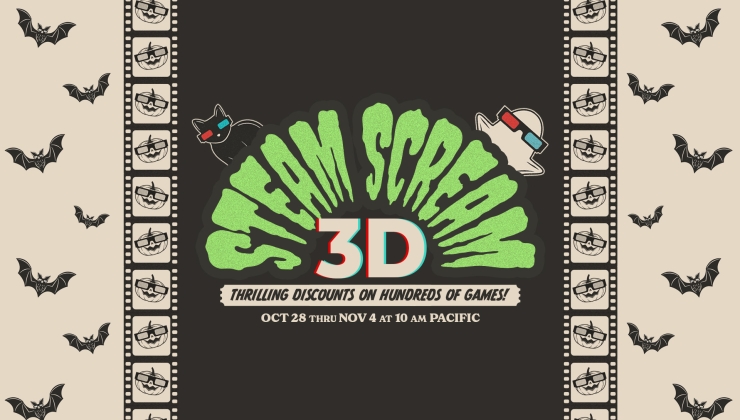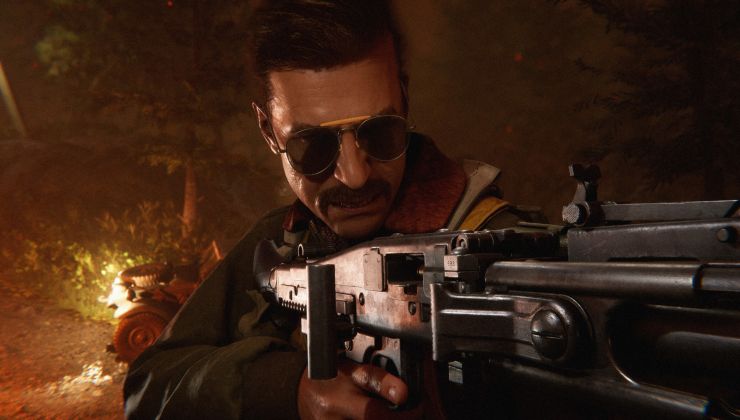Valve are committed to Linux and Linux gaming with Steam, that much is currently clear. They're working with so many contractors on various things, and it seems not everything is as people think.
Recently, Collabora, one of the companies they're contracting with went over a bunch of details like their upcoming Linux Kernel work coming to Linux 5.11 and then a quick overview of everything. Many people thought that a lot of the ongoing work, like the Kernel work was to help things like anti-cheat with Steam Play Proton and it was mentioned by Collabora however it seems that's not exactly the case. Valve developer Pierre-Loup Griffais commented on Reddit to clear up on some speculation, mentioning that Collabora did some speculating of their own.
Griffais mentioned the Kernel work is "nothing to do with anti-cheat" and is instead for anti-tamper and DRM to function properly while also mentioning proper anti-cheat support "is still a long ways out and will need vendor support". That alone is going to be a sore spot for a long time for multiplayer titles run through the Proton compatibility layer, which is why we have an FAQ entry for Easy Anti-Cheat and BattlEye (the most popular) on our dedicated Proton site.
Other points mentioned are that the Steam Linux Runtime Container has nothing to do with security, OpenXR for SteamVR was done by Valve directly (Collabora's own VR work like Monado is unrelated), and the "image-based updater work" is actually towards improving live USB media to update them without losing user data.
They backed both strong, decades-old projects like Wine and ambitious new projects like DXVK, but they also benefited from AMD's own push for open drivers, thus demonstrating how openness can become a strength. They didn't try to re-invent the wheel, they supported the already-existing open source community and ecosystem.
While they do have projects of their own, like esync/fsync, most of the money they've been spending has fueled an already resourceful community, so while their contribution is big, I don't think it involves that much in financial terms, and more particularly, much less than if they had done everything from scratch.
And while doing so, they get recognition from the community in return, which means that most Linux gamers will be happily spending money on their store. So the more they back Linux technology, the more their catalog is supported with better performance, the more recognition and money they get. They are almost alone to do this on the Linux market.
Last edited by omer666 on 15 November 2020 at 11:55 pm UTC
I can understand if you're into multiplayer games that the situation is disappointing, to say the least. But consider how far we've come; for example, I bought Yakuza: Like a Dragon last week and other than some minor annoyances/workarounds, the game basically works out of the box on day one. It's stunning to me to see a AAA game work day one, but here we are.
Hopefully there will be some solution to the anticheat problem that truly makes Linux a viable platform for gamers of all stripes.
Quoting: mphuZBut Valve is weird. It's not really a corporation--not publicly traded, and so not worried about share prices, shareholder value, quarterly this-and-that etc.Quoting: Purple Library Guythey themselves don't exactly know why they're working on upgrading Linux and Linux gamingAbsurdity. We are now talking about a huge Corporation, not about young students.
There are shareholders, but they are basically Gabe and some other Valve developers, so how Valve is run is less about typical suit stuff and more comes down to the internal culture of that small group of people who are more technologically than business oriented. It's an odd cross between an oligarchy (probably near autocracy when the chips are down) and a workers' co-op.
In addition, their core business as far as I can tell is insanely profitable, and so far their competitors are only nibbling around the edges. They have the breathing room to pull a more Bell Labs kind of approach to a few things--dabble in some relatively "blue sky" R&D. So no, in the case of Valve I don't think my suggestion is absurd. If it were Epic or someone like that I would not suggest such an idea.
Quoting: HoriI'm not saying this is why they're doing this, as I don't think that's true, but you gotta admit there's a certain benefit in being loved by the community. Valve is basically our "knight in shining armour".Indeed, I am reminded of the way many people said they would buy games at full price from Feral just to thank them for doing what they do, even when they already owned that title or weren’t interested in actually playing it. Similarly, I would never buy a Windows game from Epic to play it via Wine, but with Valve I’m willing to make a few exceptions knowing that some of that money will in fact go towards supporting the Linux ecosystem.
Quoting: SalvatosThere's something to it. Consider that Epic is doing those "megagrants", as far as I can tell mainly for the PR value.Quoting: HoriI'm not saying this is why they're doing this, as I don't think that's true, but you gotta admit there's a certain benefit in being loved by the community. Valve is basically our "knight in shining armour".Indeed, I am reminded of the way many people said they would buy games at full price from Feral just to thank them for doing what they do, even when they already owned that title or weren’t interested in actually playing it. Similarly, I would never buy a Windows game from Epic to play it via Wine, but with Valve I’m willing to make a few exceptions knowing that some of that money will in fact go towards supporting the Linux ecosystem.
Quoting: GuerrillaFor me, Linux gaming is already here because I generally don't play online multiplayer games. I have literally one friend that plays games, so I rarely have anyone tugging at me to play a game online.It's wonderful to me as well. But it's been so long time since mentions of talks between Valve and EAC, and it's still far off. But we must also look at it from another point of view.
I can understand if you're into multiplayer games that the situation is disappointing, to say the least. But consider how far we've come; for example, I bought Yakuza: Like a Dragon last week and other than some minor annoyances/workarounds, the game basically works out of the box on day one. It's stunning to me to see a AAA game work day one, but here we are.
Hopefully there will be some solution to the anticheat problem that truly makes Linux a viable platform for gamers of all stripes.
When Windows 10 was a mess, and alot of people fought against switching to it, there was a bigger opportunity for people to be persuaded to use Linux than now. These days alot have switched to Windows 10, and Microsoft has made alot of improvements that have made the OS attractive to gamers. Even Microsoft understood time was important when they decided to support developers in making their games run on Windows 7 with DirectX 12. I argue they did to prevent the developers considering Vulkan. One of those games was World of Warcraft.
I am very grateful for work Codeweavers and Valve have put in, but I wish we got more information on anti cheat. What's holding support back? What does "far off" mean? A year, two, or more? Windows 7 percentage on Steam is at 4.5%, and it's shrinking. The sooner Proton is more complete (anti cheat and mature DX12 support), the better likelihood of persuading these users to switch to Linux.
Also the sooner we get more users, the more desirable Vulkan as API will be. Consequently this will pave way for better native support.
Last edited by Linuxwarper on 16 November 2020 at 12:58 pm UTC
Quoting: LinuxwarperWhen Windows 10 was a mess, and alot of people fought against switching to it, there was a bigger opportunity for people to be persuaded to use Linux than now. These days alot have switched to Windows 10, and Microsoft has made alot of improvements that have made the OS attractive to gamers. Even Microsoft understood time was important when they decided to support developers in making their games run on Windows 7 with DirectX 12. I argue they did to prevent the developers considering Vulkan. One of those games was World of Warcraft.Yeah, I think the Windows 10 opportunity has sailed. But there will always be more for as long as they're trying to make money. At some point they will either have a next version or they'll do another trial balloon at trying to make it a subscription.
I am very grateful for work Codeweavers and Valve have put in, but I wish we got more information on anti cheat. What's holding support back? What does "far off" mean? A year, two, or more? Windows 7 percentage on Steam is at 4.5%, and it's shrinking. The sooner Proton is more complete (anti cheat and mature DX12 support), the better likelihood of persuading these users to switch to Linux.
Also the sooner we get more users, the more desirable Vulkan as API will be. Consequently this will pave way for better native support.









See more from me